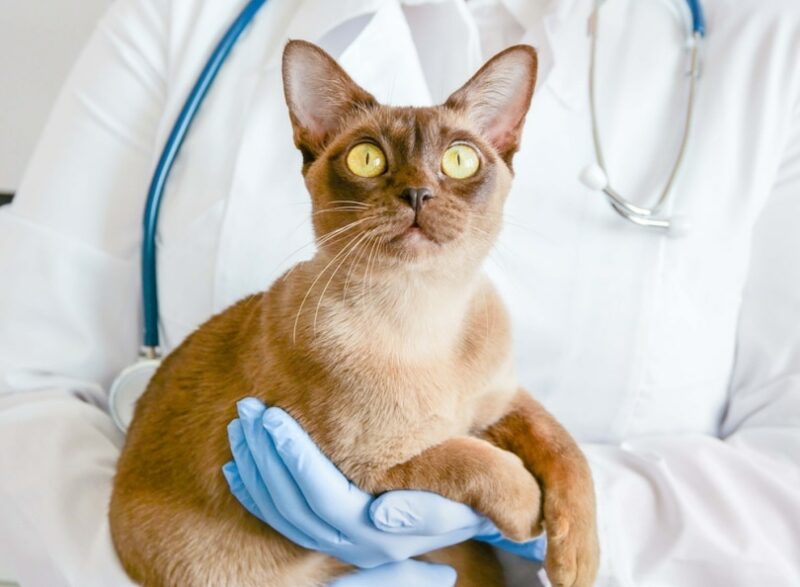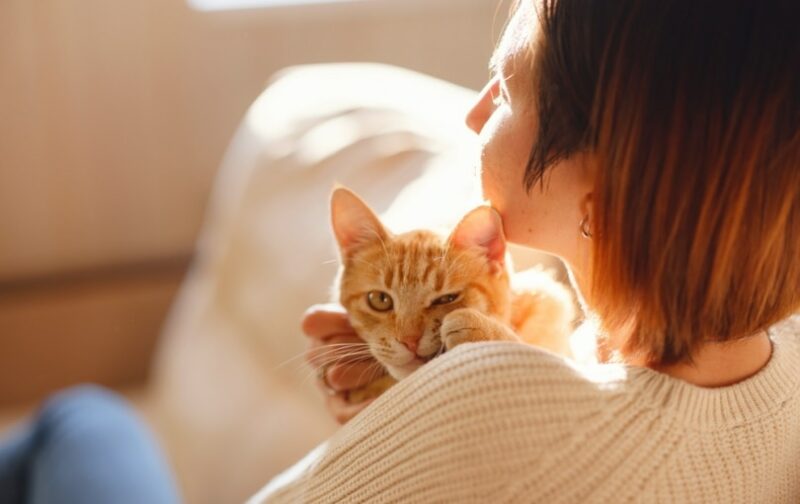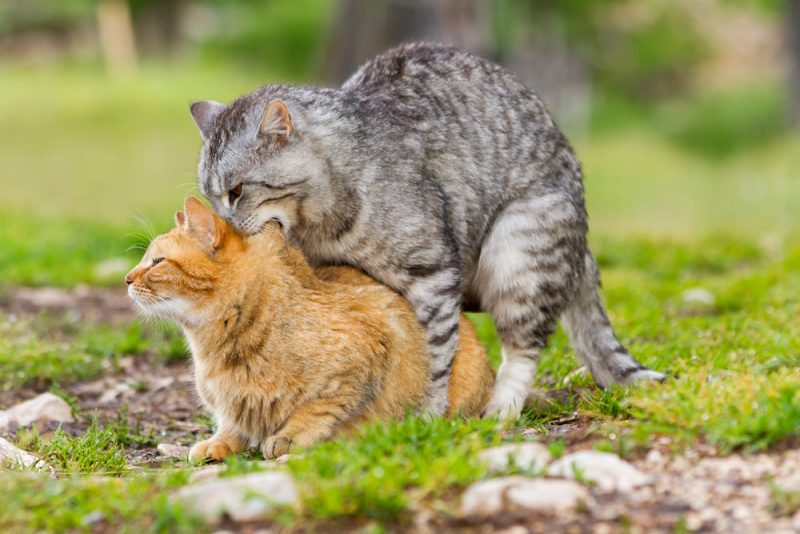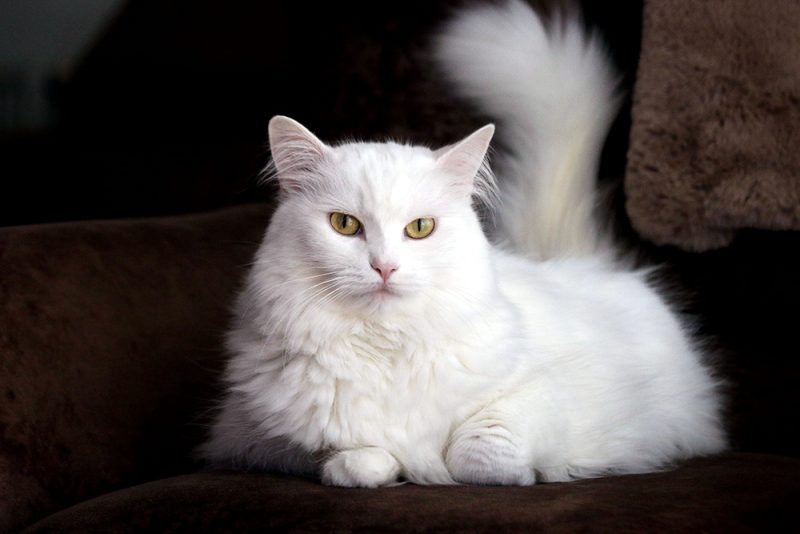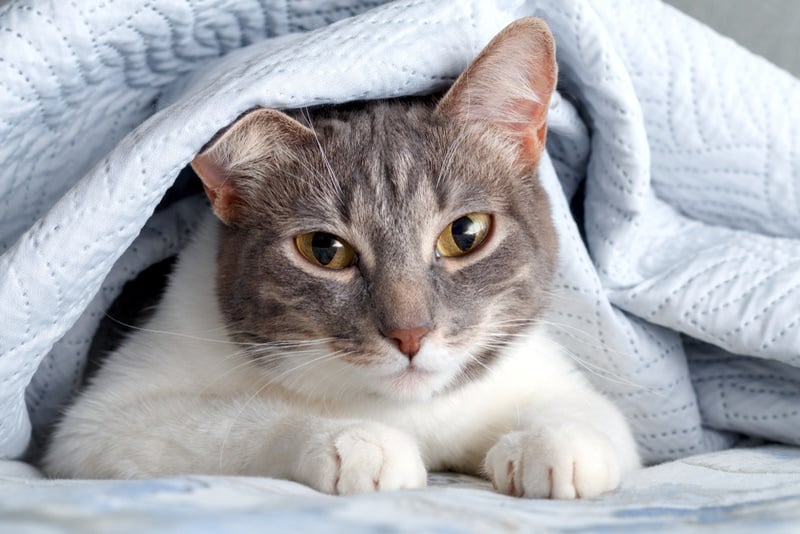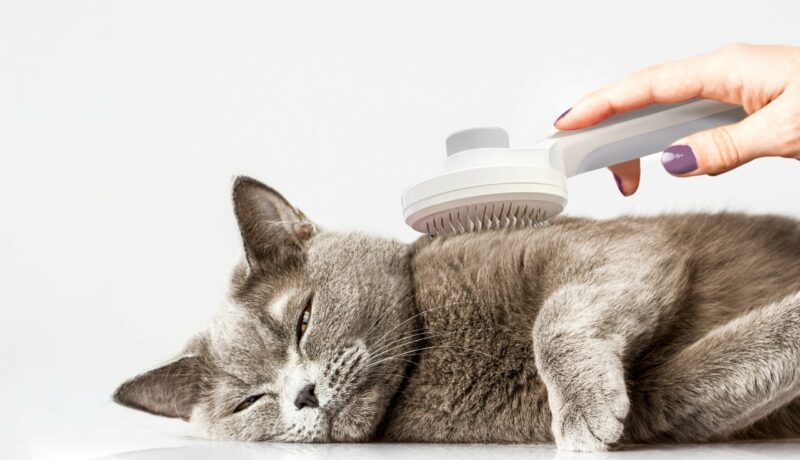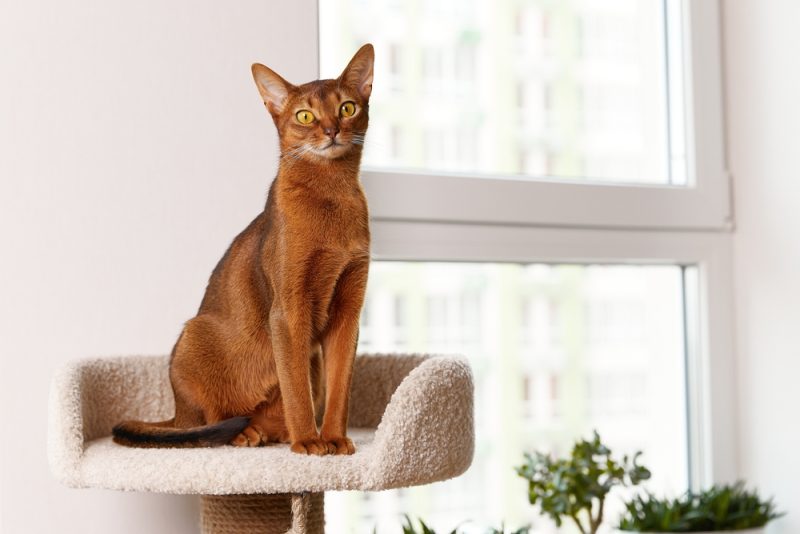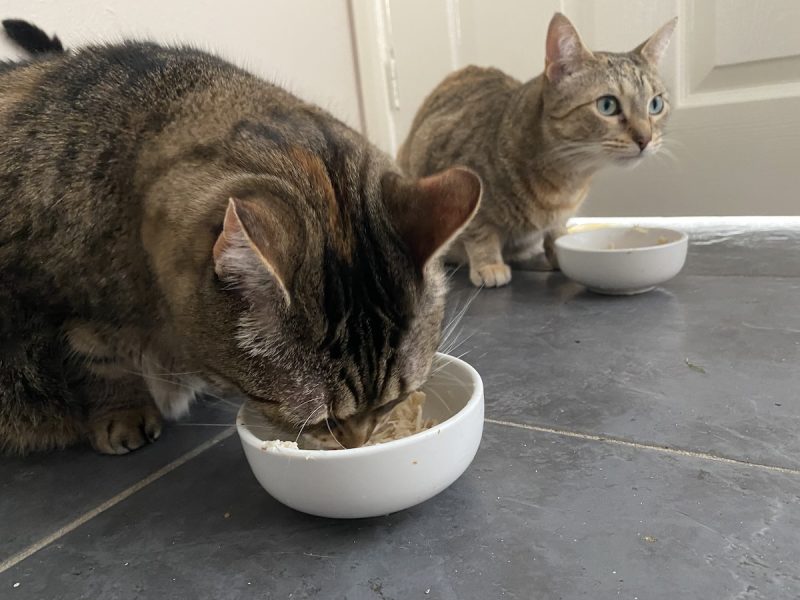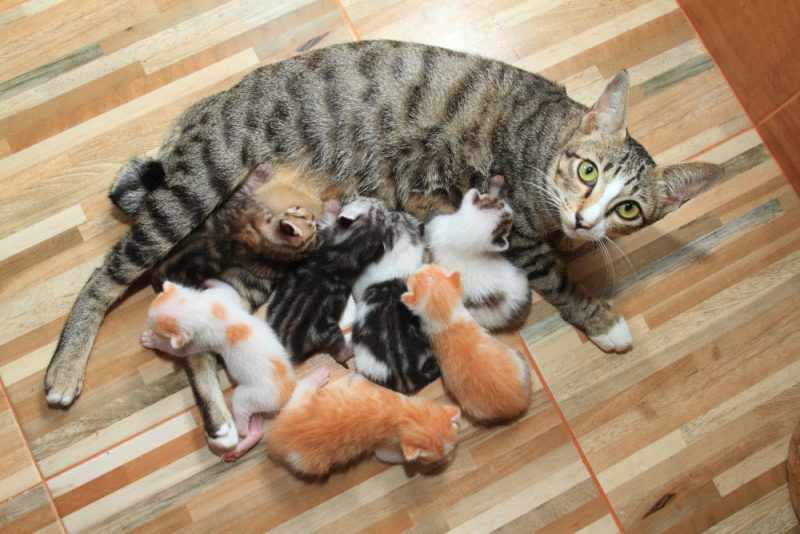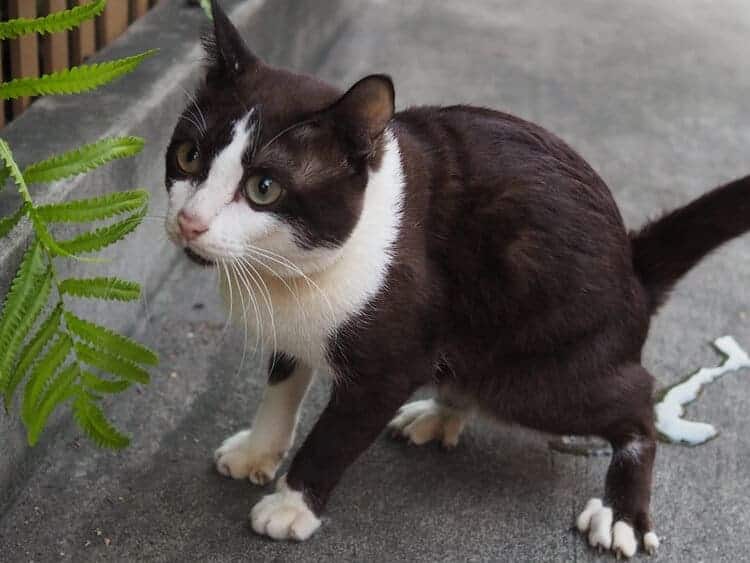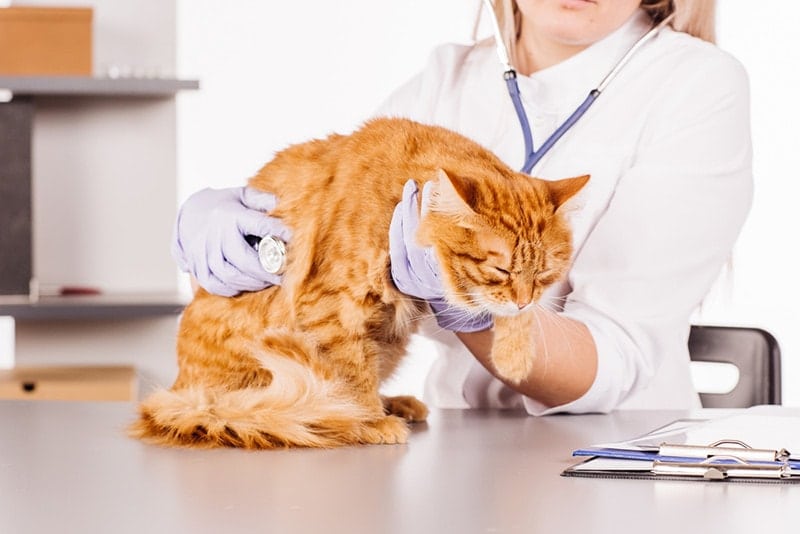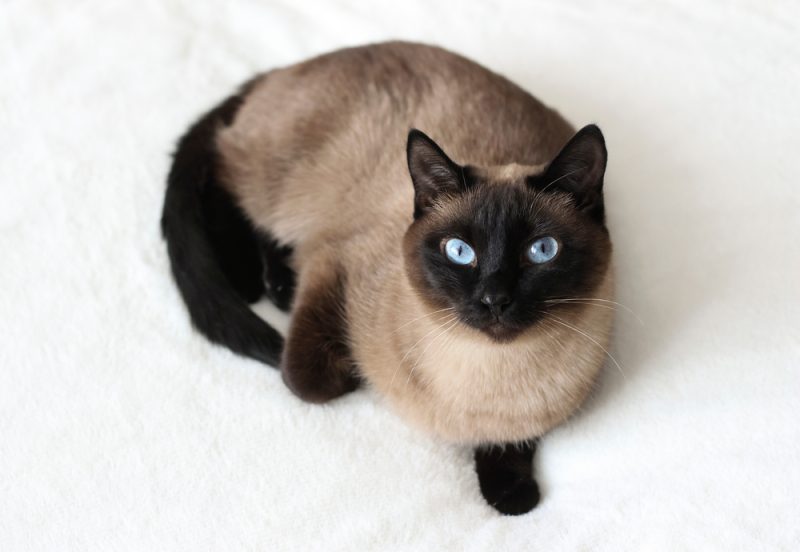In this article
View 5 More +Seizures can be a frightening experience for both owners and their cats. There are many different types and causes. Usually, seizures are not life-threatening unless they last for a prolonged amount of time or cause the cat to injure themselves somehow when the seizure is occurring.
Focal seizures in cats are the most common type of seizure seen. They only affect one part of the brain. This leads to localized clinical signs across the body which depend on what part of the brain is affected. There are effective management and treatment options available for focal seizures and most cats go on to lead a very normal life if on medication.
What Are Focal Seizures in Cats?
Seizures are caused by electrical disturbances in your cat’s brain. The term “seizure” is used to document a sudden, self-limiting discharge of neurons in the brain. The clinical signs vary depending on the location of the misfiring neurons. Seizures are a symptom of an underlying disease process, for example, epilepsy.
There are a number of different causes of seizures in cats. These are usually categorized into intracranial, meaning causes inside the skull, and extracranial, meaning causes outside of the skull.
A focal seizure refers to abnormal electrical activity in one specific part of the brain. In a focal seizure, because only one part of the brain is affected, clinical signs are only seen relating to that area of the brain. The location of the seizure in the brain dictates the clinical signs witnessed. Focal seizures are usually non-violent with very subtle signs. Owners can often miss them. They can manifest as simple as a flickering of whiskers or an ear twitch.
In a generalized seizure, the cat’s whole brain is affected, so normally the whole body convulses and shows the effects of the seizure. With a generalized seizure, usually, the cat loses consciousness. This does not normally occur with focal seizures.
A focal seizure can eventually develop into a generalized seizure. Focal seizures are very common in cats.
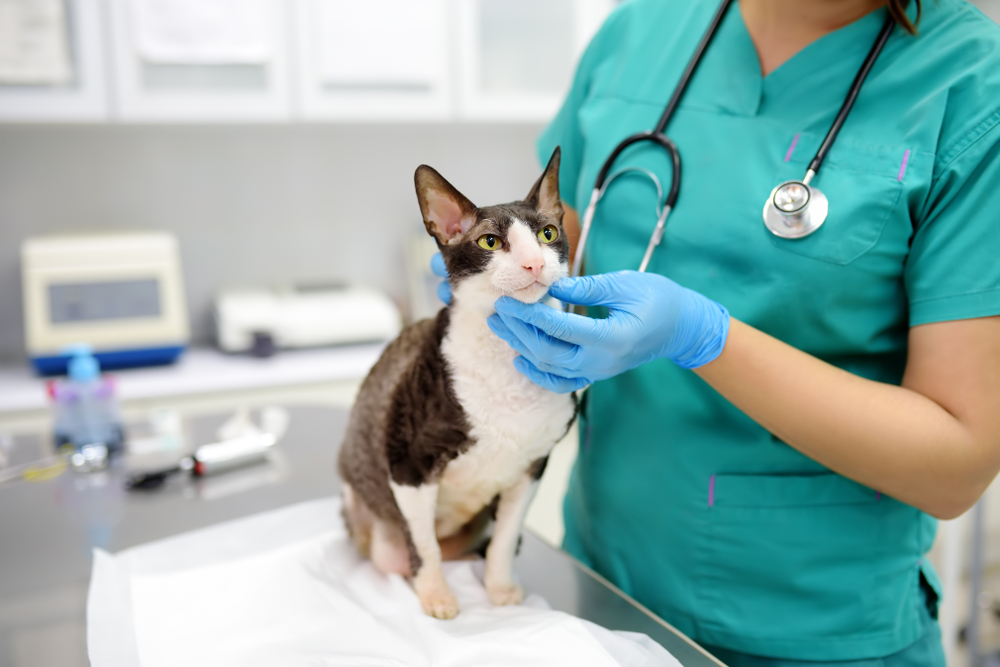
What Are the Signs of Focal Seizures in Cats?
Focal seizures do not have the same build-up and aftermath as full seizures (often called “Grand Mal” seizures) With generalized seizures, there is usually a distinct pre-ictal and post-ictal phase before and after the actual seizure event. Focal seizures do not have this pre or post-ictal phase so they can be more difficult to spot. They have a sudden onset and there are usually no clinical signs noted prior to the seizure starting. The recovery period is a lot quicker too.
There are a few different clinical signs witnessed when a cat experiences a focal seizure.
- Unilateral facial twitching
- Limb twitching
- Leg paddling
- Head bobbing
- Meowing
- Growling
- Hissing
- Increased frequency of swallowing
- Increased salivation
- Dilated pupils
- Suddenly running about
- Urination
- Defecation
- “Fly catching” (snapping at the air/other abnormal mouth movements)
- Behavioral changes
- Circling
Seek veterinary advice if you’re concerned about your pet’s well-being.
If you need to speak with a vet but can't get to one, head over to PangoVet. It's an online service where you can talk to a vet online and get the advice you need for your pet — all at an affordable price!

What Are the Causes of Focal Seizures?
There are a number of different causes of focal seizures in cats.
- Brain tumor: A malignant or benign cancerous growth affecting the brain can cause seizures. As the tumor grows it puts pressure on the surrounding tissue due to the space it is occupying and causes inflammation and seizure activity. They are more frequently seen in older cats.
- Problems with the blood supply to the brain: Incidents where the blood supply to the brain is compromised can cause seizure activity. These can be caused by underlying medical issues such as heart disease, hyperthyroidism, diabetes, and kidney failure. High blood pressure can also contribute to vascular issues.
- Infections: Infectious causes such as toxoplasmosis, cryptococcus, and feline infectious peritonitis can cause seizure activity.
- Hypoglycemia: This can occur commonly in undernourished kittens or diabetic cats that have been overdosed.
- Injury or trauma: Any assault on the brain tissue can affect its normal functioning and cause seizure activity.
- High temperature: External sources of heat or a high systemic fever can cause seizures.
- Overstimulation: Loud unpredictable noises and bright lights can often cause seizures in cats. The reasons why this occurs are not fully understood.
- Metabolic diseases: Diseases such as kidney, thyroid, and liver disease can cause seizure activity. This is more common in older cats.
- Epilepsy: This is very rare in cats. There is usually a different underlying cause for seizure activity.
- Toxins: There are a few toxins that cause seizure activity in cats such as ethylene glycol (antifreeze) and rodenticides.
- Drugs: Some drugs can trigger seizure activity such as Fluoroquinolones and Permethrin.
Diagnosis of Focal Seizures in Cats
A vet will take a thorough history and perform a clinical exam on your cat. They will take blood and urine samples for testing. The vet can run specific blood tests for feline leukemia virus (FeLV) and feline immunodeficiency virus (FIV), which are diseases that are both associated with seizure activity and neurological problems.
If you have a video of your cat displaying seizure activity, this is very useful for a vet to analyze. They will be looking for any signs of disease and attempting to rule out some specific diseases. Diagnosis is usually done by the process of elimination. If a cat has frequent repeated seizures and there is no underlying cause identified, epilepsy may be diagnosed. Epilepsy is the presence of repeated seizures without a definite diagnosis for the cause of the seizures being made. Epilepsy is less common in cats compared to dogs. It is important to perform all necessary diagnoses to determine any underlying causes of seizure activity before coming to the diagnosis of epilepsy.
For focal seizures, the only way to gain a definitive diagnosis is to perform an electroencephalogram (EEG). This is a specific test that permits the vet to record brain waves during a suspected seizure episode. It is very difficult to catch these moments as seizures are often unpredictable, so it is not routinely carried out in general practice. Usually, diagnosis is made based on history, clinical signs, and ruling out other diseases.
How Do I Care for a Cat with Focal Seizures?

You and a vet will need to have a frank discussion when deciding if it is appropriate to start anti-seizure medication. The frequency of the seizures will be taken into account, as will the severity. You will need to discuss the effect the seizure is having on your cat’s general day-to-day activities.
If your cat is experiencing seizures frequently and it is compromising their quality of life, it is recommended to start treatment.
Cats that are experiencing focal seizures can be treated with the same medication used to treat generalized seizures.
Medication for seizures in cats includes:
- Phenobarbital: This is the most commonly chosen anti-seizure drug for cats. It is a cheap drug that can be dosed twice daily. There are not many side effects reported and it reaches therapeutic levels in the blood quickly.
- Levetiracetam: An anticonvulsant drug that depresses the excitability of functioning nerves in the brain. It is often used in conjunction with phenobarbital.
- Gabapentin: This is another anticonvulsant drug. It is usually used alongside other anti-seizure medications. It is rarely used on its own as it is not very effective.
Although seizures affect approximately 1-2% of cats, there is a distinct lack of scientific literature focusing on diagnostics and treatment protocols. Treatment for seizures in cats is often extrapolated from methods that work well on dogs and humans.
Once anti-seizure medicine is prescribed for your cat, they will usually stay on it for the rest of their life. The vet will discuss doses with you as the dose may need to be adjusted depending on how your cat responds to the treatment. The vet will need to monitor your cat frequently when on the treatment and it requires a lot of commitment from the owner.
![]()
Frequently Asked Questions
What is the difference between a generalized seizure and a focal seizure?
Focal seizures start in one specific part of the brain. They either stay in one location or spread across the brain. Clinical signs can be very subtle or more obvious. Generalized seizures occur when abnormal electrical activity occurs in both sides of the brain, clinical signs are seen all over the body as opposed to one specific place.
How common are focal seizures in cats?
Focal seizures are the most common type of seizure witnessed in cats. Seizures are one of the most common neurologic disorders of cats, affecting 1%–2% of the general feline population.
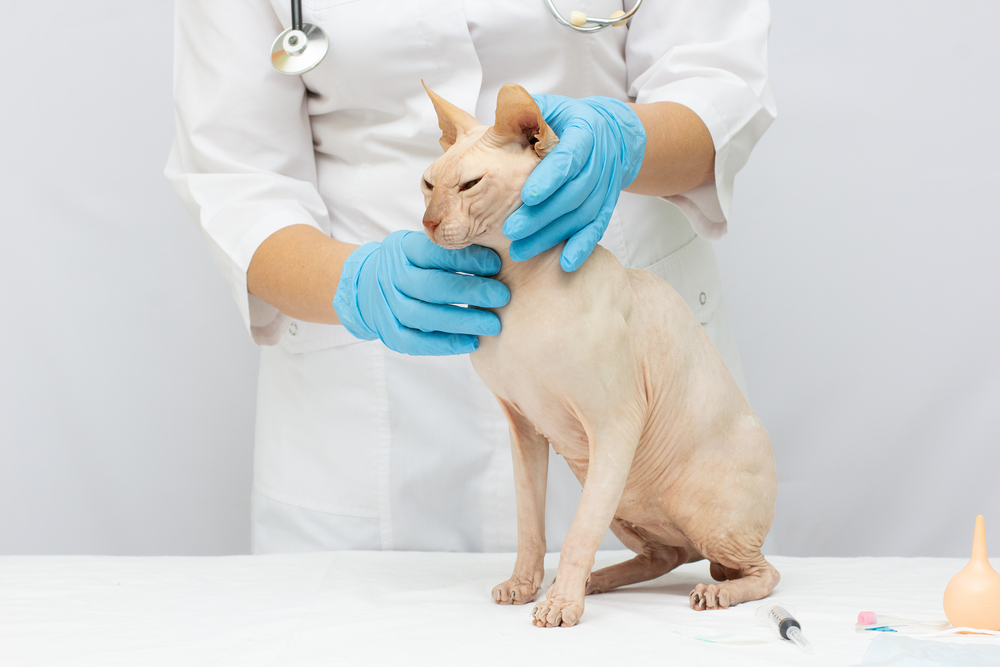
Are focal seizures painful for cats?
Focal seizures are not typically painful for cats. They may cause your cat distress as they may be confused, but they do not hurt. Your cat may, however, hurt itself when it experiences seizure activity if it falls over or bumps into something.

Conclusion
Focal seizures in cats are very common. Depending on the location, clinical signs can vary greatly. Some signs are subtle and may even be missed by owners. Other signs are very obvious and can be distressing. Diagnosis of focal seizures is usually based on clinical signs and history and ruling out other common illnesses.
If focal seizures are frequent enough, a vet will discuss starting medication to control them. Cats can live a fairly normal life on antiseizure medication but will require frequent monitoring by a vet.
See Also:
- Scoliosis in Cats: Detection & Treatments (Vet Answer)
- My Cat Is Having a Seizure: Our Vet Explains the Diagnosis, Treatment & What to Do
Featured Image Credit: Elpisterra, Shutterstock
